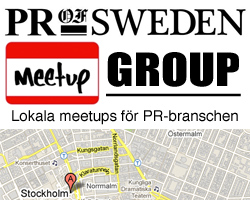It seems like the pirate movement in Sweden disappeared from the spotlight rather quickly. It wasn’t very unexpected. The movement will go on, but will we ever see any political ramifications which can match the FRA resistance and the the two seats in European Parliament? Probably not. But what did the movement accomplish?
The pirates fought for personal integrity, but you could argue that very little was won. Our private e-mails are still scanned for key words by the government and it seems like leading officials in the political sphere still don’t understand how the web actually can be used against us all, that the road to hell very well can be paved with the best intentions.
Sure, politicians will think twice about dealing with these questions lightly, but it seems like the changes mostly lies within the PR activities around these types of questions, rather than any signinficant changes in public policy.
The general public got to be involved in history and is getting more and more used to seeing the web as a powerful leverage for a multitude of grassrot voices. But we are still giving away personal data almost faster than the speed of light to companies like Facebook, Twitter, and Google.
So, from a political, legislative, and integrity perspective, it might seem like a “lost” movement.
But the events weren’t by any means “lost in translation”. Once upon a time the Swedes were regarded as a liberal population of early adopters, and the Pirate movement has restored that image to some extent. People around the world could have been laughing at the Swedish pirates”, but they didn’t. No-one did. The pirates, through their political actions, have definitely earned respect for standing up as a collective for the rights and the integrity of the individual.
We have also seen the economical aspects of the prophesies come to life. Spotify, Headweb, Voddler and the likes of up-and-coming services like menyou.com, they all build upon the notion that business must thrive on sharing. We see an advent of new business models on the web, as well as several corporate functions turns from top-down to collaborative and value-driven approaches.
Also, culture didn’t die. Instead it became richer beyond imagination, exactly what the pirates said it would be. Content creators are still making money, but in new ways than before, even if this has meant a cruel process where content creators in old structures is getting replaced by new ones. Those who can’t survive this, they simply fade out without having anyone missing them but themselves.
The power of social networks are here to stay, whether it is to give voice to the voiceless, to overthrow governments, to monitor the establishemnet, or simply to connect and share knowledge with each other without interference.
Freedom is never a given and the only sure thing is that we sometimes must fight for it. My prediction is that the coming years will be more of a silent fight, where the biggest enemy seamlessly will be opting us all into complex registers. It will be for our own good, they will say. Freedom is, as it always have been, easy to give up, but a freakish struggle to keep intact.
But maybe this was the last fight where the establishments used brute force to deprive us from our rights? I think they’ve learned their lessons. From now on, we’ll be fighting a faceless enemy that asks for our freedom nicely…
I guess this is how fights should be regarded. It’s seldom black and white. As in any war, it’s hard to determine winners and loosers in a definite manner.
A lot could be said about the tactics used by both sides. At times, the fight was indeed messy. The Pirate movement was always a political movement, but it was a big decision to actually enter the political arena as a party. I still think this was the right decision, and the short-term success really sent out a powerful message to the world. It sparked thousands of important conversations.
The real mistake was to go for the national elections. The Swedish people were prepared to send a strong message on integrity to Europe and to the world, but every indication made clear that the people weren’t prepared to give such a narrow and technocratic movement access to our national treasury.
Being in politics is knowing what fights to choose, and the pirate movement chose the wrong fight. If the movement should stand any chance at all in the national elections, the program needed to include education, healthcare, and finances. Instead, greed came in to play, and the movement decided to also run for the regional elections.
Basically without budget, without sufficient support from potential voters, without enough professionals understanding the dynamics of politics, the pirate movement went for the Big Win. And subsequently, they didn’t even come close. Not by any standard, not in the national election, nor in the regional elections.
After the success in the election to the European Parliament, the pirate movement should’ve reassessed their possibilities in conjunction to their higher purpose—accomplishing real change.
At that point, the Pirate movement could have turned back into a powerful movement on the web, offering leverage for those candidates from any party who showed their support. The movement could have made it worth while for delegates from right to left to come out as Pirates. In return, they could’ve gotten a massive support from the online community. The objective should’ve been getting as many Pirates as possible from other established parties into the Swedish parliament, not getting party officials elected.
Instead, the pirates in the established parties became enemies, and the discussion ended up in pointless nuancees. In leveraging this strategy, the Pirate movement alienated any potential supporters within the establishment, which in turn didn’t help, neither the pirate officials, nor the established sympathizers to become elected into these important forum.
“Sharing is caring” got forgotten as soon as officials saw their opportunity to get elected. But the truth is, that they never stood a chance.
I think it’s a good thing, all in all. The Pirate movement belongs underground, it’s where they can do most good for society. Knowing when to shift gears is difficult in politics, but maybe now the fighters for integrity, privacy, and information free for all can regroup and focus on something that actually can make this world of ours into a better place.
Getting the edge back in play.
I would advice the leading figures to forget about the next election. Instead, focus and find ways to recruit and educate already established influentials on the one hand, activate the grassroots on the other. The movement has the key ingredients to becoming one of the most powerful lobby groups in the world. Or, if hell freezes over, becoming a very weak political party with a few mandate only causing chaos and earning disrespect on the margin. The choice ought to be simple.
Because we see a powerful shift in value creation on the web. New business models emerge and the dynamics of global economy is changing. Crowdsourcing, community, and swarm technology is making an impact. Internet access might even be on the agenda for the United Nations bill of human rights in the years to come.
This is not the work for a political party; this is the passion and the fuel for a powerful lobby, operating on the social web in a way that no other movement in the history of man kind has ever done before. The Pirate movement has laid the groundwork for becoming such an organization. Or, make a fool of themselves by running for office again with virtually no chances at all of wining anything of substance.

 Connect on Facebook
Connect on Facebook Jerry Silfwer's LinkedIn Profile
Jerry Silfwer's LinkedIn Profile Subscribe to Blog via E-mail
Subscribe to Blog via E-mail Follow @DoktorSpinn on Twitter
Follow @DoktorSpinn on Twitter My Workplace, Whispr Group
My Workplace, Whispr Group











